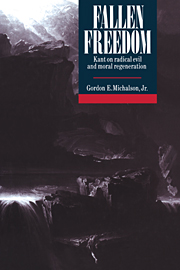Introduction
Published online by Cambridge University Press: 15 December 2009
Summary
If there are Gods they will reward your goodness. If there are none, what does anything matter?
Clytemnestra to Achilles, Iphigenia at AulisI do not understand my own actions. For I do not do what I want, but I do the very thing I hate.
Romans 7:15Think of the history of religious thought in the West since about 1750 as an ongoing referendum on the idea of “otherworldliness.” From Enlightenment attacks on priestcraft and supernaturalism to the liberation theologies of our own day, key issues in religious thought often turn on the question of whether humanity's proper understanding of itself and its hopes for fulfillment should be couched in “this-worldly” or “otherworldly” terms. Likewise, questions regarding God's activity and sheer reality always occur against the background of the deeply problematic nature of all appeals in the modern world to anything that, in principle, eludes observation, measurement, and verification. A vote in the referendum over other-worldliness is ultimately a vote concerning the relevance or importance to human life of a transcendent power or a hidden, saving action.
A complex web of forces helped to bring about this referendum, but the most powerful of these was no doubt the new idea of nature that emerged in the seventeenth century and was eventually codified by Newton.
- Type
- Chapter
- Information
- Fallen FreedomKant on Radical Evil and Moral Regeneration, pp. 1 - 10Publisher: Cambridge University PressPrint publication year: 1990

